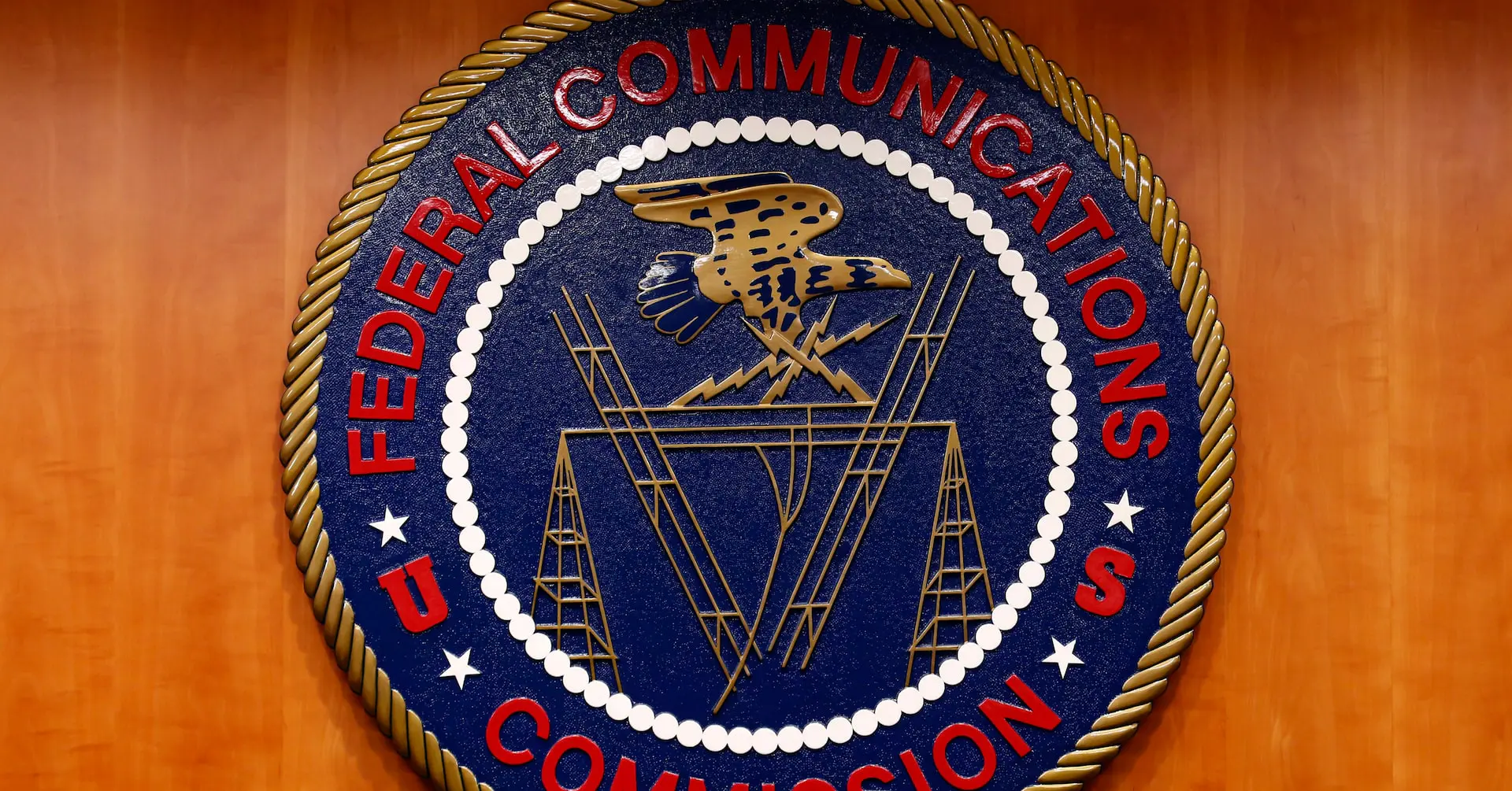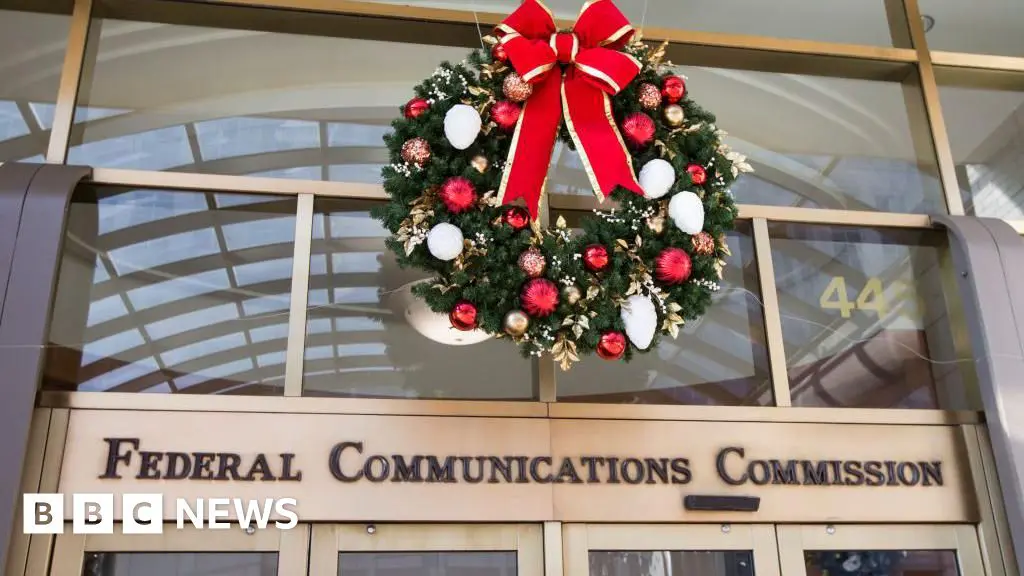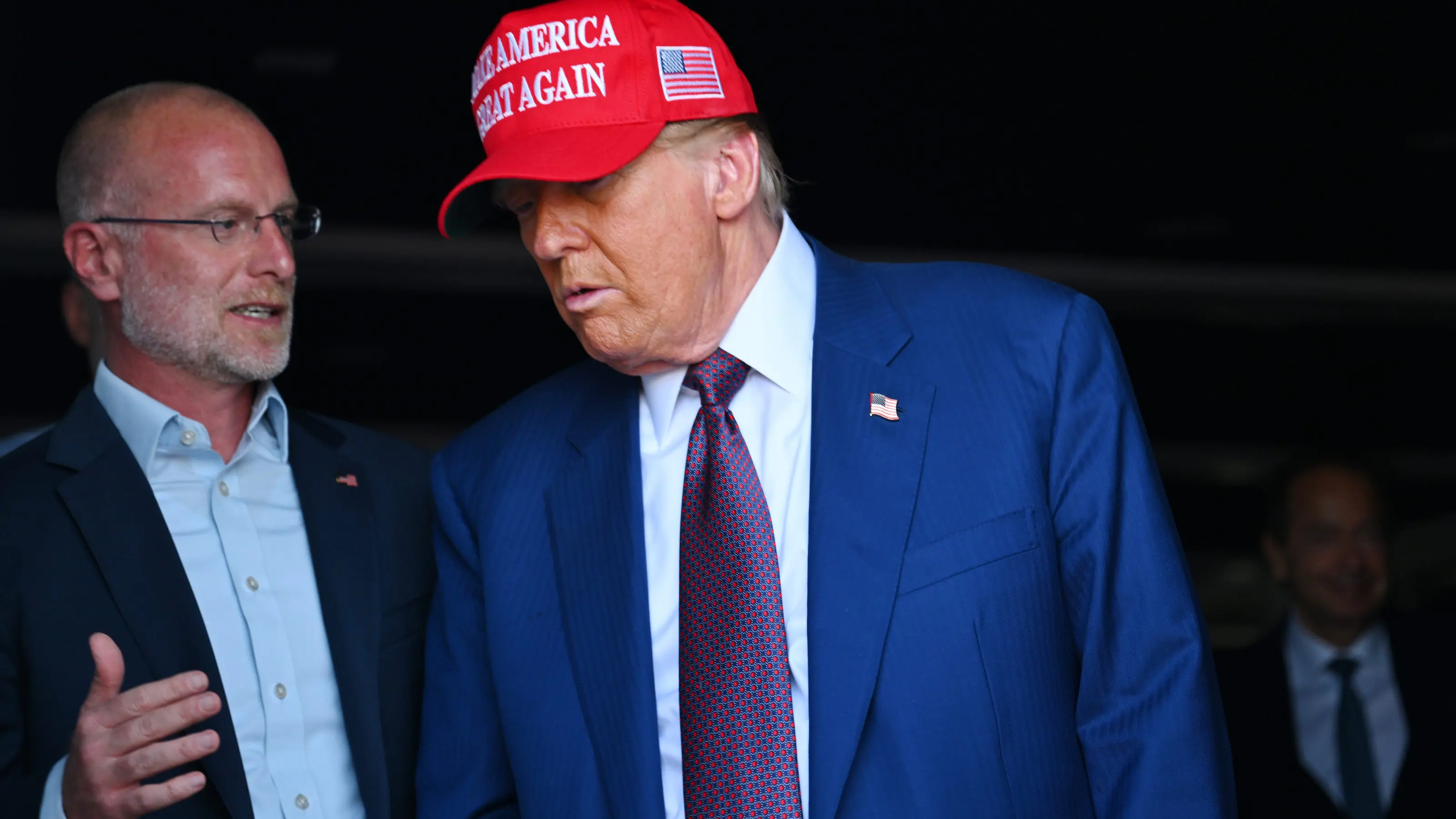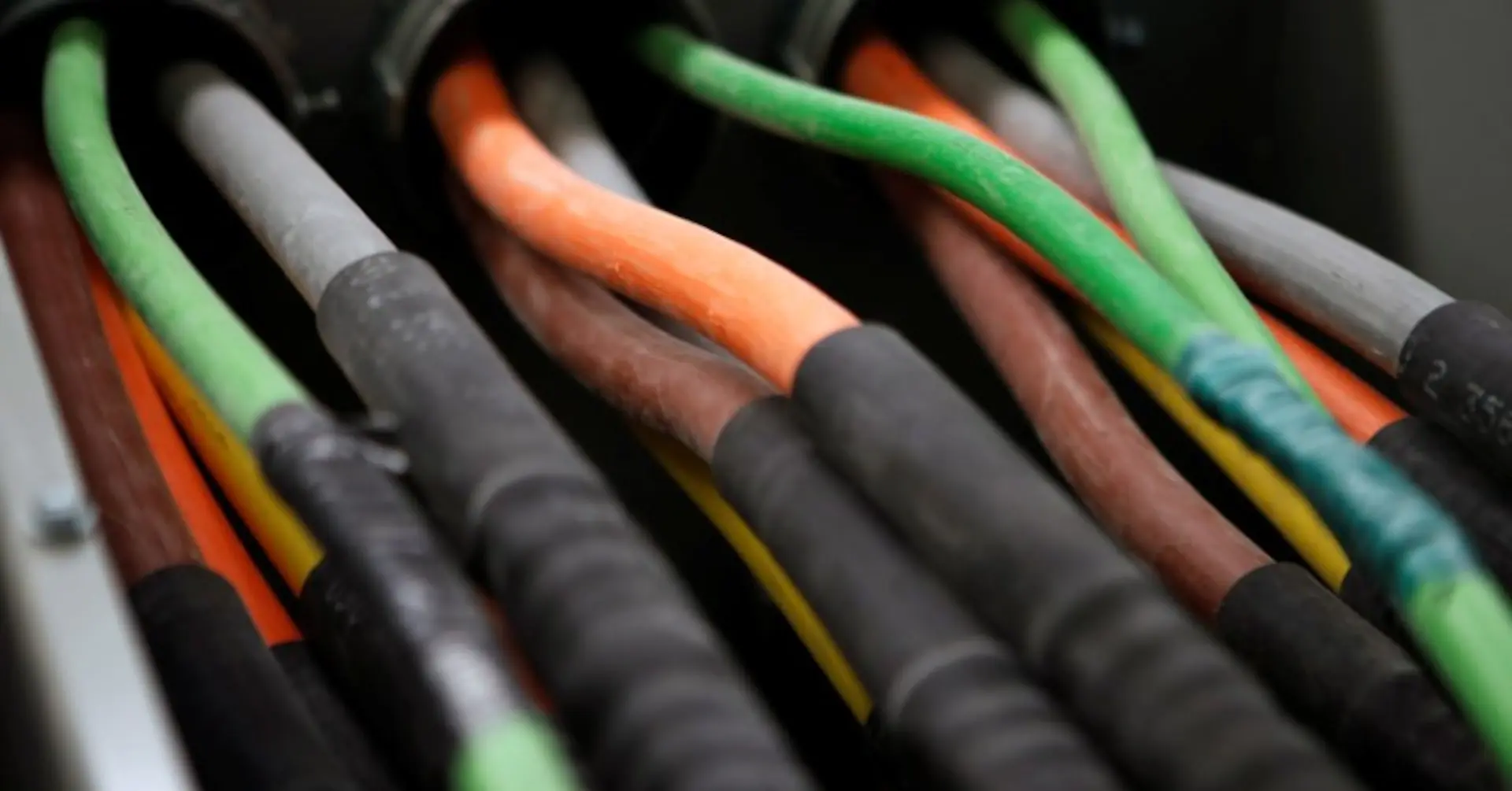US appeals court blocks Biden administration effort to restore net-neutrality rules

WASHINGTON, Jan 2 (Reuters) - A U.S. appeals court ruled on Thursday the Federal Communications Commission did not have legal authority to reinstate landmark net neutrality rules.
The decision is a blow to the outgoing Biden administration that had made restoring the open internet rules a priority. President Joe Biden signed a 2021 executive order encouraging the FCC to reinstate the rules.
A three-judge panel of the Cincinnati-based 6th U.S. Circuit Court of Appeals said the FCC lacked authority to reinstate the rules initially implemented in 2015 by the agency under Democratic former President Barack Obama, but then repealed by the commission in 2017 under Republican former President Donald Trump.
Net-neutrality rules require internet service providers to treat internet data and users equally rather than restricting access, slowing speeds or blocking content for certain users. The rules also forbid special arrangements in which ISPs give improved network speeds or access to favored users.
The court cited the Supreme Court's June decision in a case known as Loper Bright to overturn a 1984 precedent that had given deference to government agencies in interpreting laws they administer, in the latest decision to curb the authority of federal agencies. "Applying Loper Bright means we can end the FCC’s vacillations," the court ruled.
The decision leaves in place state neutrality rules adopted by California and others but may end more than 20 years of efforts to give federal regulators sweeping oversight over the internet.
Incoming FCC Chair Brendan Carr voted against the reinstatement last year and praised the decision to invalidate what he called Biden's "internet power grab." He vowed to unwind additional regulations.
FCC Chair Jessica Rosenworcel called on Congress to act after the decision. "Consumers across the country have told us again and again that they want an internet that is fast, open, and fair. With this decision it is clear that Congress now needs to heed their call, take up the charge for net neutrality, and put open internet principles in federal law," Rosenworcel said in a statement.
The FCC voted in April along party lines to reassume regulatory oversight of broadband internet and reinstate open internet rules. Industry groups filed suit and successfully convinced the court to temporarily block the rules as they considered the case.
USTelecom, an industry group whose members include AT&T (T.N) , opens new tab and Verizon (VZ.N) , opens new tab, said in a joint statement with other groups that sued that the ruling is "a victory for American consumers that will lead to more investment, innovation, and competition in the dynamic digital marketplace."
Former FCC Chair Ajit Pai said the court ruling should mean the end of efforts to reinstate the rules, and a focus shift to "what actually matters to American consumers - like improving Internet access and promoting online innovation."
The Trump administration is unlikely to appeal the decision but net-neutrality advocates could seek review by the Supreme Court.
The rules would have given the FCC new tools to crack down on Chinese telecom companies and the ability to monitor internet service outages.
A group representing companies including Amazon.com (AMZN.O) , opens new tab, Apple (AAPL.O) , opens new tab, Alphabet (GOOGL.O) , opens new tab and Meta Platforms (META.O) , opens new tab had backed the FCC net-neutrality rules.
Court strikes down US net neutrality rules

A US court has rejected the Biden administration's bid to restore "net neutrality" rules, finding that the federal government does not have the authority to regulate internet providers like utilities.
It marks a major defeat for so-called open internet advocates, who have long fought for protections that would require internet providers such as AT&T to treat all legal content equally.
Such rules were first introduced by the Federal Communications Commission under former Democratic president Barack Obama but later repealed during Republican Donald Trump's first term.
The decision, just as Trump is poised to enter the White House for a second term, likely puts an end to the long-running legal battle over the issue.
In their decision, the judges noted that different administrations have gone back and forth on the issue.
But they said the court no longer had to give "deference" to the FCC's reading of the law, pointing to a recent Supreme Court decision that limits the authority of federal agencies to interpret laws, a decision that critics expect will be used to weaken regulation in the years ahead.
"Applying Loper Bright, means we can end the FCC's vacillations," the Sixth Circuit Court of Appeals said.
Brendan Carr, a Republican member of the FCC who Trump has tapped to lead the agency, said he was pleased the court had invalidated the Biden administration's "Internet power grab".
The FCC's outgoing Democratic commissioner said the ruling turned the issue over to Congress.
"Consumers across the country have told us again and again that they want an internet that is fast, open, and fair," Jessica Rosenworcel said.
"With this decision it is clear that Congress now needs to heed their call, take up the charge for net neutrality, and put open internet principles in federal law."
The fight over net neutrality was once a heated issue in the US, pitting internet providers against big tech companies such as Google and Netflix.
Comedian John Oliver famously urged his audience to express support for the rules, leading to a deluge of comments that crashed the government's site.
But the issue has faded in prominence since the rules were repealed in 2018.
Thursday's ruling does not affect state-level net neutrality laws, which in some places offer similar protections.
But advocates, like Mr Oliver, have said that national rules are important to preventing internet providers from having powers to throttle certain content or charge more for speedy delivery of their service.
Public Knowledge, a progressive-leaning internet policy group, said the decision had weakened the FCC's power to shape privacy protections, implement public safety measures and take other action.
It said it believed the court had erred in ruling that internet service providers were simply offering an "information service" rather than acting as telecommunications companies.
"The court has created a dangerous regulatory gap that leaves consumers vulnerable and gives broadband providers unchecked power over Americans' internet access," it said.
But USTelecom, an industry group whose members include AT&T and Verizon, said the decision was "a victory for American consumers that will lead to more investment, innovation, and competition in the dynamic digital marketplace."
Federal appeals court strikes down FCC net neutrality rules. What this means for you.

A federal appeals court has struck down the Federal Communications Commission’s net neutrality rules that prevented internet service providers from throttling or blocking some content or charging more to deliver it.
The U.S. Court of Appeals for the Sixth Circuit said Thursday that the FCC lacked the authority to reinstate the Obama-era rules, dealing a final blow to a decade-long effort to gain greater oversight over the internet.
Long the source of partisan tensions, the net neutrality rules were repealed in Donald Trump’s first term. President Joe Biden signed a 2021 executive order encouraging the FCC to reinstate them, which the FCC voted to do along party lines in April.
Democrats want greater oversight of internet service providers while Republicans reject the idea that they should be regulated like phone companies.
Holiday deals: Shop this season’s top products and sales curated by our editors.
The appeals court’s decision is an early win for the incoming Trump administration which has vowed to roll back Biden regulations.
Brendan Carr, tapped as the new FCC chair by Trump, has been a key critic of net neutrality.
“While the work to unwind the Biden Admin’s regulatory overreach will continue, this is a good win,” Carr said Thursday on X.
Former FCC Chairwoman Jessica Rosenworcel had called net neutrality “a necessity for daily life.” She said Thursday that Americans still want “fast, open, and fair” internet service and called on Congress to take action.
The decision does not affect state laws in California, Colorado and Washington.
Neutrality refers to the idea that internet service providers should treat all content flowing through their systems equally. The term was coined in 2003 by Columbia University law professor Tim Wu.
Net neutrality rules are opposed by telecommunications giants like AT&T, Comcast and Verizon.
Internet service providers praised Thursday’s ruling. “Our fight to stop the government’s unwarranted internet takeover has resulted in a major victory,” Grant Spellmeyer, CEO of the cable trade group ACA Connects, said Thursday.
Consumer advocacy groups are major backers of net neutrality, arguing the rules are needed to keep internet service providers from abusing their power. These advocates warned Thursday that consumers could be subject to higher fees or slowed or blocked services.
“Today’s decision will let the incoming Trump FCC abdicate its responsibility to protect internet users against unscrupulous business practices,” Free Press Vice President of Policy and General Counsel Matt Wood said in a statement.
U.S. FCC votes to maintain 2017 repeal of net neutrality rules

WASHINGTON (Reuters) - The U.S. Federal Communications Commission voted 3-2 on Tuesday to maintain its 2017 repeal of Obama-era net neutrality rules, even after a federal court directed a review of some provisions of the repeal.
The 2015 net neutrality rules barred internet service providers (ISPs) from blocking or slowing internet content or offering paid "fast lanes." Under President Donald Trump, the 2017 FCC order granted ISPs sweeping powers to recast how Americans use the internet, as long as they disclose changes.
A federal appeals court in October 2019 largely upheld the FCC’s repeal of the rules, but ordered the agency to reconsider the repeal's impact on public safety; regulations on attachments to utility poles; and the FCC’s ability to provide subsidies for broadband service. The FCC majority opted to leave the order unchanged.
The net neutrality repeal was effective in June 2018. ISPs have not changed how users access the internet, but consumer groups fear that they could move to raise prices or slow speeds selectively for some customers.
"It is patently obvious to all but the most devoted members of the net neutrality cult that the case against the (net neutrality repeal) was a sham," FCC Chairman Ajit Pai said Tuesday.
ISPs and other advocates of the net neutrality repeal say the new rules have boosted investment. Consumer groups and other critics of the dispute the assertion that loosening net neutrality rules led to new investment.
FCC Commissioner Jessica Rosenworcel, a Democrat, said "this agency is not interested in getting it right. Instead, it doubles down, rather than recognizing the realities of the world around us."
Democrats have made net neutrality repeal a campaign issue. Presidential candidate Joe Biden, who was Obama's vice president, is expected if he wins to designate an FCC chair who would move to would reinstate net neutrality.
Senator Ed Markey, a Democrat, said "without net neutrality protections, it’s just a matter of time before big broadband providers start raising prices, slowing down internet speeds, and making it harder for families, small business, and students to access the opportunities to recover and rebuild from this pandemic."
